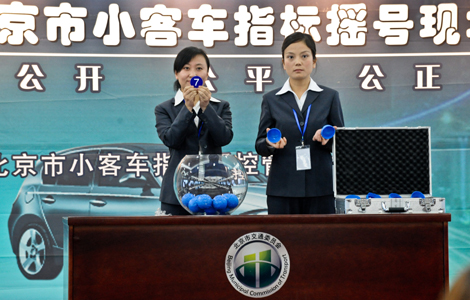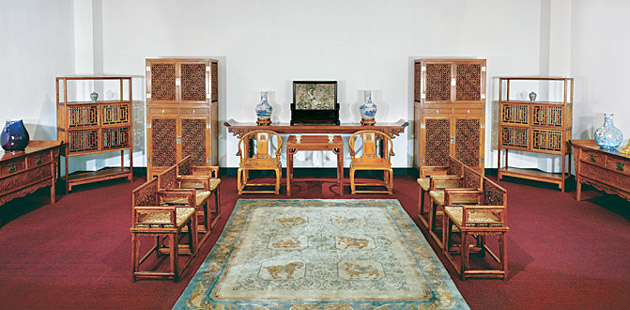China tightens microblog supervision
Updated: 2011-12-22 21:57
(Xinhua)
|
|||||||||||
GUANGZHOU - More Chinese cities joined an Internet supervision measure Thursday following Beijing's requirement of local microblog operators to register users with real names, a move designed to purge online rumors and enhance social credibility.
Seven major websites in the cities of Guangzhou and Shenzhen in south Guangdong province will begin from Thursday to require new users of their microblogging services to register with real names, the provincial publicity department said in a statement.
Among the seven microblog operators is Shenzhen-based Tencent Holdings, the country's leading Internet company that operates the popular QQ instant-messaging service.
The new rules only apply to new users, including private and institutional users, who are required to submit their real identities at registration, the statement said.
However, users can choose to use their real or screen names on the webpage, according to the statement.
The new rules are made "in accordance with Chinese laws and regulations" in a bid to "foster healthy Internet culture" and "strengthen management and guide social networking services (SNS) and instant-messaging tools," according to the statement.
Guangdong's real-name requirement came shortly after Beijing announced new rules last Friday, requiring users of microblogging services in the city to provide their true identities at registration.
Experts claim the new rules will help purify the Internet environment, as fake and fraudulent information is often seen spreading through microblogs, which are gaining popularity among users.
China currently has about 300 million microbloggers, according to Liu Zhengrong, deputy director with the Internet department of State Council Information Office.
However, there is an obvious gap between the actual number of microblog subscribers and the number of microblog ID names. Some subscribers have several IDs and some IDs are mere "dummies" -- created to increase the number of microblog followers, experts say.
Wu Danhong, an associate professor at China University of Political Science and Law, confirmed that the microblogs are glutted with "dummy" IDs that can be traded in mass at a certain price.
Wu initiated a "rumor-curbing league" in May this year, only to find that almost all rumors were from IDs that are not verified.
This has left room for rumors or fraudulent information to spread on the Internet as users of the "dummy" IDs don't have to take responsibility for their words, Wu said.
Real-name registration is considered part of the country's efforts to strengthen the management of new media, including the Internet.
In a guideline adopted by the central authorities on October 18 at the sixth plenary session of the 17th Central Committee of the Communist Party of China (CPC), it was proposed that Internet security should be highlighted, online information spreading should be regulated, and a cultivated and rational Internet environment should be fostered to promote the credibility of new media.
"The implementation of real-name registration will create an information-filtering mechanism that remind microbloggers of self-discipline in writing or duplicating postings," said Yin Hong, a journalism professor at Tsinghua University.
"The move will enhance the authenticity and reliability of Internet information to some extent," Yin said.
But Yin noted that the measure needs to be implemented legally.
"To require real-name registration doesn't necessarily mean that each word released by microbloggers must be real and accurate, which even the press isn't able to guarantee," Yin said, noting that the measure will urge microbloggers to take a more responsible attitude.
"Internet users need to enjoy the freedom of speech, which must be assured," Yin said.
Hot Topics
HIV/AIDS, Egypt protest, Thanksgiving, climate change, global economic recovery, home prices, high-speed railways, school bus safety, Libya situation, Weekly photos
Editor's Picks

|

|

|

|

|

|







